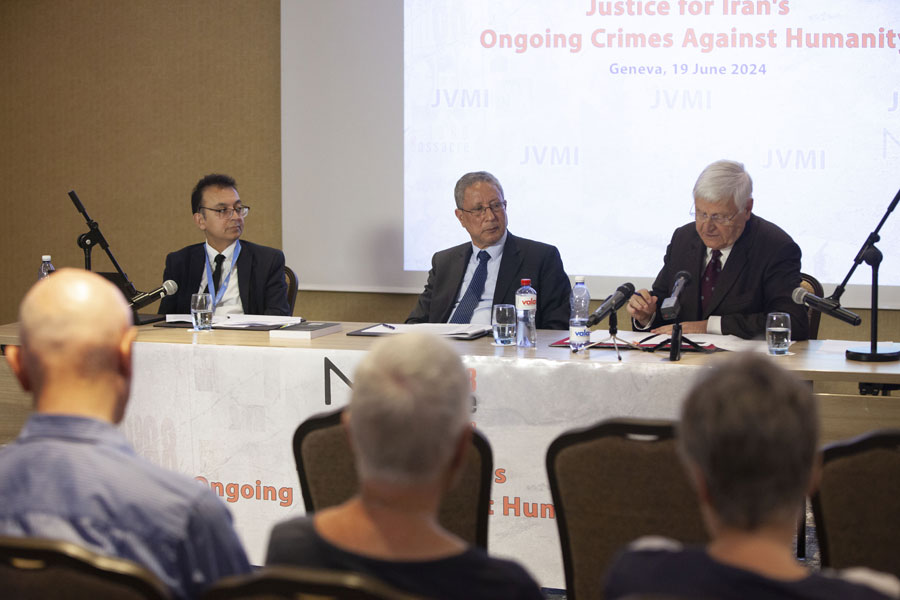Geneva, 19 June 2024 – In a conference held on Wednesday in Geneva, the United Nations Special Rapporteur on Iran, Prof. Javaid Rehman, presented a new landmark report titled “Atrocity Crimes and Grave Violations of Human Rights Committed by the Islamic Republic of Iran (1981–1982 and 1988).”
This report marks the first extensive UN investigation into the mass executions of 1981-1982 and the 1988 massacre of thousands of political prisoners in Iran. It represents a significant milestone in the pursuit of justice for the victims of the 1988 massacre and serves as a stark reminder of the ongoing human rights crisis in Iran.
The conference, organised by Justice for the Victims of the 1988 Massacre in Iran (JVMI), brought together a distinguished panel to discuss the findings and implications of the report.
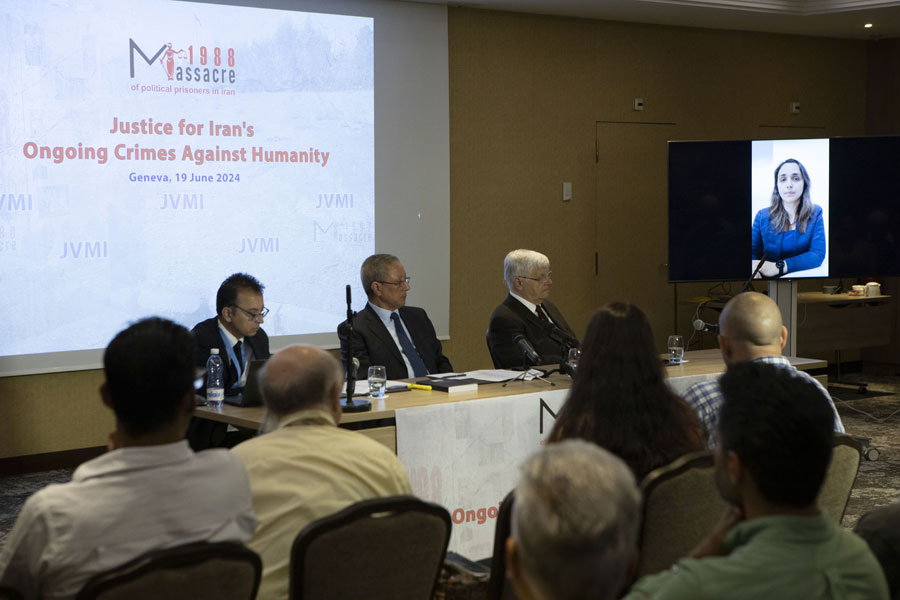
Keynote speaker Prof. Javaid Rehman detailed the exhaustive research that underpinned the report, which exposes the horrifying details of the mass executions of 1981-1982, and the 1988 massacre and the systemic groundwork that enabled such atrocities.
The report highlights the roles of prominent Iranian figures, including former President Ebrahim Raisi and current Presidential candidate Mostafa Pour-Mohammadi, both of whom were members of the Tehran Death Commission in 1988 responsible for the executions. This historic investigation underscores that the ongoing human rights violations in Iran are deeply connected to a legacy of unaddressed crimes, fostering a persistent culture of impunity.
Click here to read the full text of the Special Rapporteur’s remarks
Prof. Rehman emphasised, “The deeply rooted nature of these atrocities and the ongoing human rights abuses in Iran demonstrate a clear link to the history of unpunished crimes, reinforcing the need for international accountability and justice.”
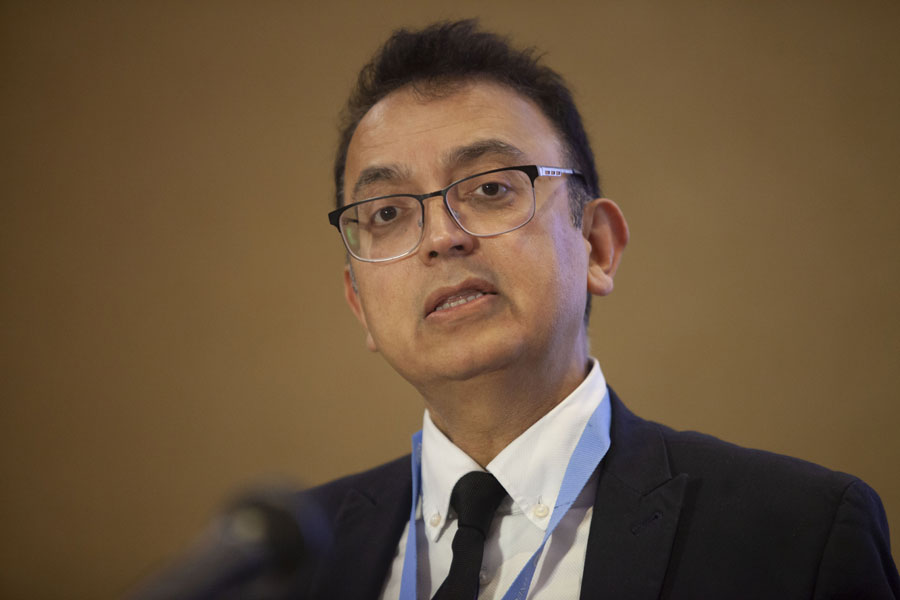
The UN Special Rapporteur added, “It’s a very detailed report. I started working on it from the time that I started my mandate because this is such an important issue in the lives of thousands of people. It is not a historical issue, as many people think. It is a live issue. There are serious concerns about gross violations of human rights.”
Noting that what happened in 1988 could be classified as a crime of genocide, Prof. Rehman said, “When Khomeini issued the fatwa, and in fact, long before that, the regime had a view that PMOI, or the Mujahideen, were, in fact, a deviant sect. They were no longer Muslims. And the fatwa quite clearly says that they have abandoned Islam,” which means the Genocide Convention could be applicable here.
“I’m calling upon the international community to take concrete steps towards an investigative and accountability mechanism, which would preserve all of the evidence, the testimonies, and the submissions that I have accumulated, and judge on that basis as to what needs to be done in terms of accountability,” Prof. Rehman stressed.
Tahar Boumedra, former Representative of the UN High Commissioner for Human Rights in Iraq and Director of JVMI, chaired the conference. Underscoring the importance of this report for the victims and their families, the JVMI Director said, “This is a crucial step towards recognising the suffering of the victims and ensuring that their voices are heard.”
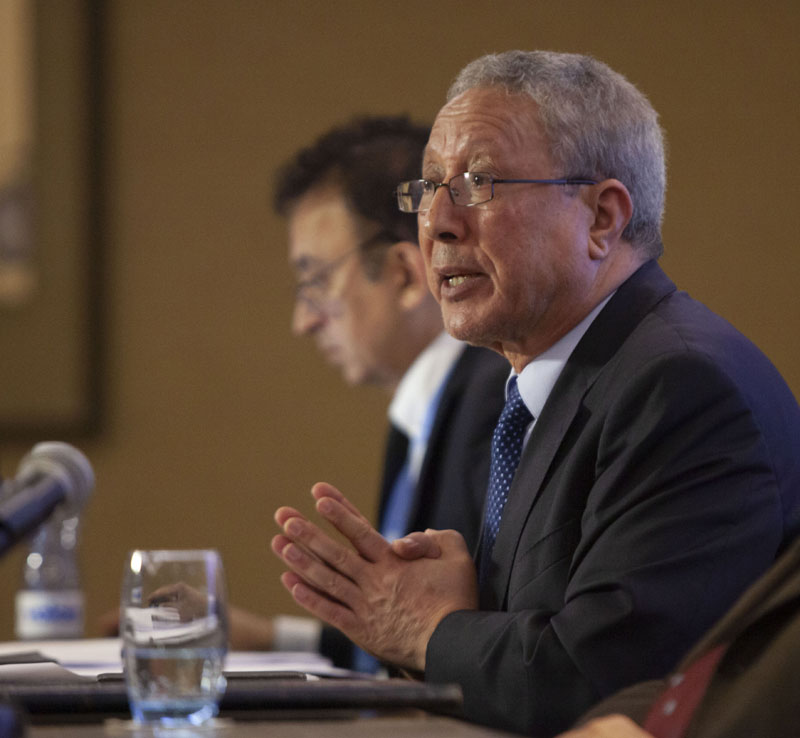
Referring to the problem that the international community is facing, Mr. Boumedra said, “At the universal sphere, we see that human rights issues are dealt with by a political organ, which is the United Nations Human Rights Council. They’re not independent. They handle issues of human rights with a political approach. Now, we do have on the table a draft statute of the world court of human rights. And Article 1 of this draft specifies that the court, the world court of human rights, will be an independent court. It will be permanent. And it will implement the rule of law based on existing international instruments and customary international law related to human rights.”
Also joining Prof. Rehman on the panel were Judge Wolfgang Schomburg, former Judge at the UN International Criminal Tribunal for the former Yugoslavia (ICTY) and the International Criminal Tribunal for Rwanda (ICTR), and Grażyna Baranowska, Member of the UN Working Group on Enforced or Involuntary Disappearances (WGEID), who participated online.
Judge Wolfgang Schomburg highlighted the legal implications of the report, calling for increased efforts to hold those responsible accountable.
“Justice delayed is justice denied. It is imperative that the international community takes decisive action to address these crimes,” he stated.
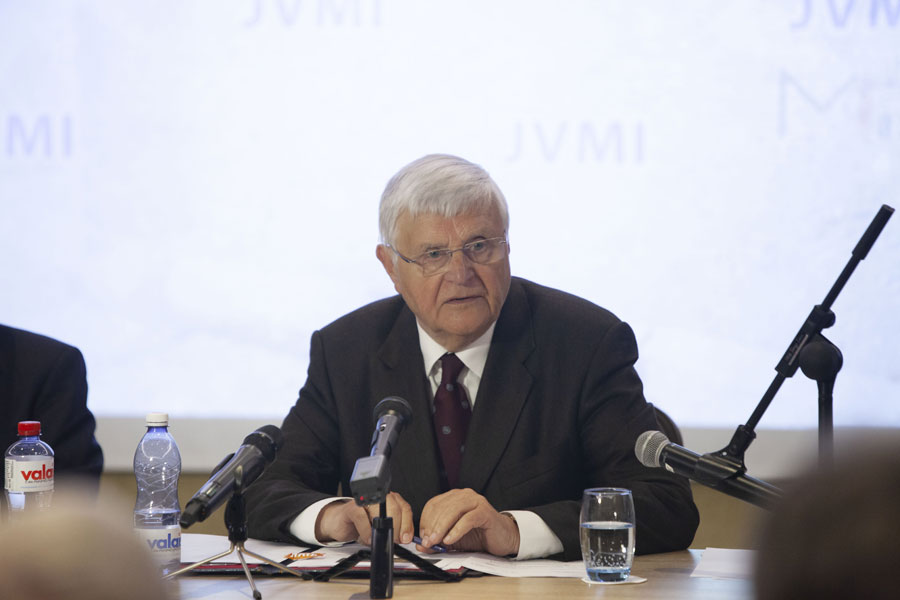
Regarding the mechanism to deal with major crimes like the 1988 massacre, Judge Schomburg said, “We have to be inventive and innovative to create at least these additional mechanisms. There is one. The first one was established 2016 in relation to crimes committed in Syria since March 2011. It was established on the basis of an independent international commission of inquiry and its task is to react to the gross violations of human rights and furthermore crimes against humanity being committed and recommending that the Security Council take action to refer the conflicts to international justice bodies. It’s called IIIM. Why III? Because it’s an international, impartial and independent III mechanism to assist and work and it delivers results that can be used on the level of international courts or tribunals about international crimes.”
Ms. Baranowska reiterated the ongoing relevance of addressing enforced disappearances and other human rights violations in Iran. “The Working Group regularly communicates on disappearances in Iran, both those that are occurring currently and those that have happened in Iran in the past. So, we have pressured many times authorities to solve and address those disappearances that have happened in the past, including specifically those unaccounted deaths that happened due to the massacres in 1988.”
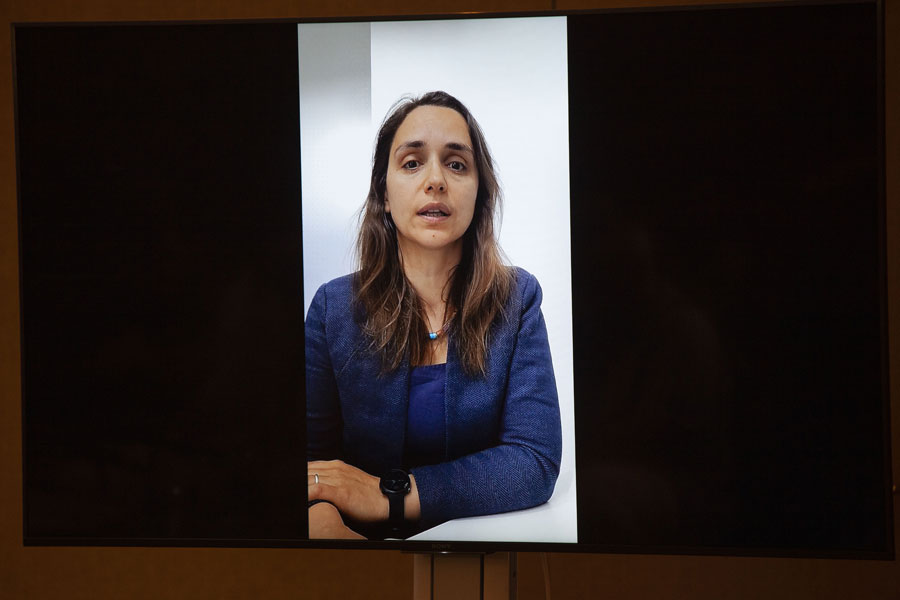
The conference was attended by ambassadors and delegates from various missions at the UN Headquarters in Geneva, reflecting the international community’s growing concern over Iran’s human rights record.

